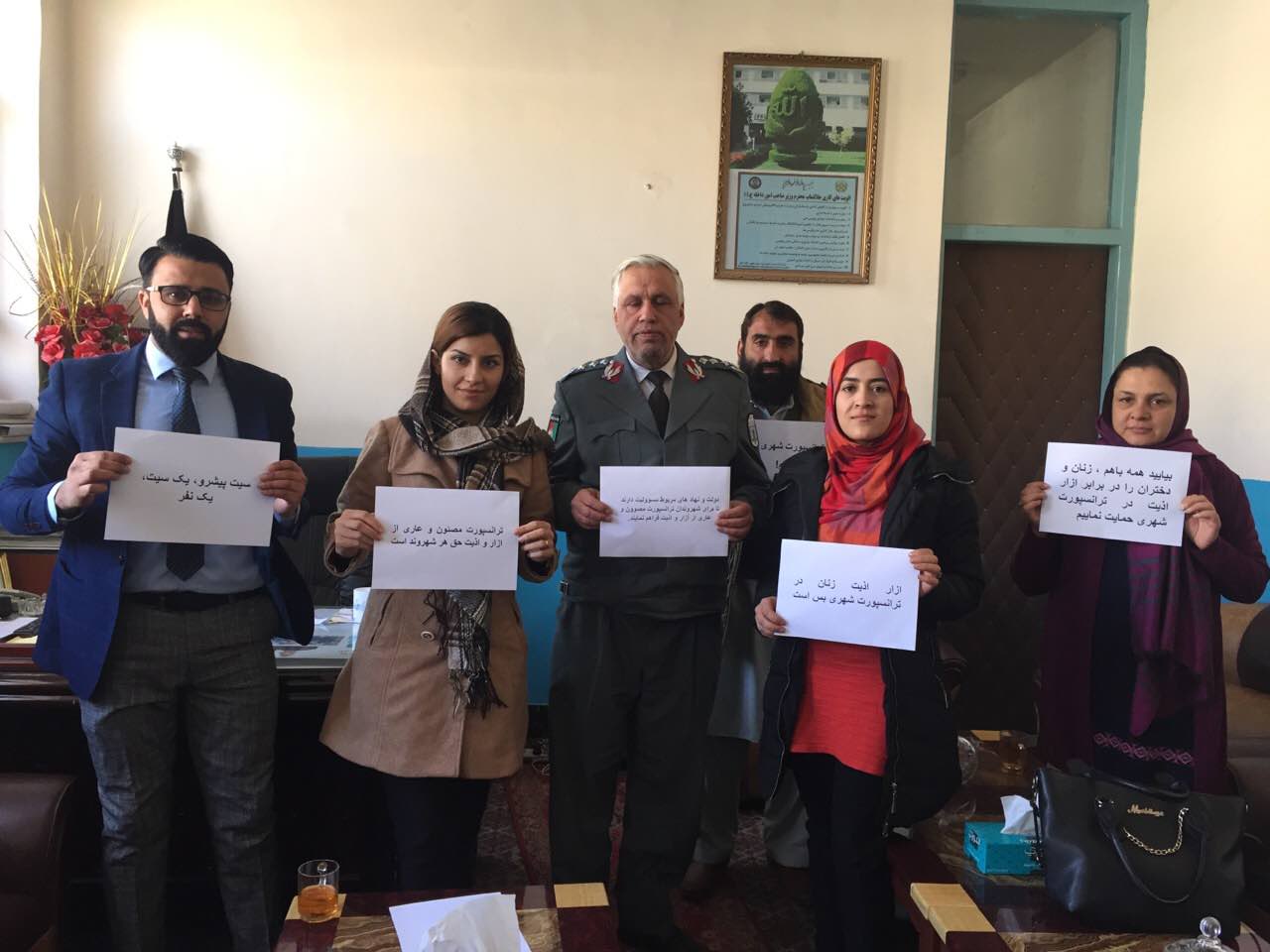Women and Girls Have Right to Travel Without Being Harassed

Harassment in public transport has become a serious issue for women and girls in Afghanistan and particularly in Kabul city. Apart from harassment issues, the so-called public transport (shared taxis) is also not secure and trustworthy, various crimes including theft, pick pocketing and kidnappings has been reported by the people and media.
In a report published women and children research institute in 2015, 90% of interviewed women were harassed at least once in public space and as a result of SCA’s social media survey we found that a huge number of people agreed that harassment in public transport is one of the major social issues which is being faced by both men and women in Afghanistan.
To address the issue, the SCA together National Masculinity Alliance (NMA) has initiate multiple advocacy activities which includes, meetings with the Women Social and Political Working group which is led by Afghanistan’s Chief Executive Office, the Ministry of Interior, Kabul Traffic Directorate.
As a result of SCA’s advocacy struggles, in 2018 the practice of accepting two passengers in the front seat of shared taxis (used as public transport in Kabul) was banned by the Kabul Traffic Directorate. During the first quarter of 2019 the Ministry of Interior will finalize guidelines to deal with street and public transport harassment.
The other initiative which is taken by the Alliance and SCA is the establishment of a national helpline to put victims of harassment in contact with the local police.
The SCA has also together with Chief Executive Office conducted numbers of advocacy meetings with Afghanistan Ministry of Interior (MoI) on the necessity of establishing a helpline for responding to harassment related queries which is specifically faced by women and girls in public transportation and streets. The MoI has agreed to develop a national anti-harassment procedural guideline in which they will set up a helpline through which the victims of harassment can directly file their complaints to the police. The said operational procedure is still in draft status and the SCA is supporting technically the MoI in finalization of the document.
These achievements have been made through significant contributions from the National Masculinity Alliance, established and led by Human Rights and Gender Unit at SCA.
SCA established National Masculinity Alliance, NMA, based on the recommendation of The Other Side of Gender Equality: Men and Masculinities in Afghanistan” study conducted by SCA in 2016. The aim of NMA is to increase commitment and capacities on gender transformative approaches to engage boys and men in the process of mainstreaming and gender equality.
Serajuddin Joya
Human Rights and Gender Manager, SCA